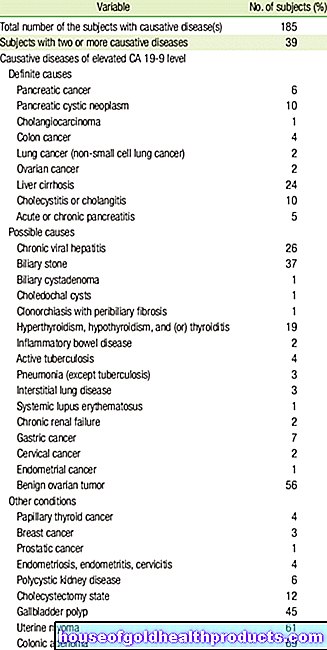Pregnancy: Too much licorice is risky for the child
Larissa Melville completed her traineeship in the editorial team of . After studying biology at Ludwig Maximilians University and the Technical University of Munich, she first got to know digital media online at Focus and then decided to learn medical journalism from scratch.
More about the experts All content is checked by medical journalists.Alcohol, raw milk cheese, sushi - many foods are suddenly taboo during pregnancy because they can harm the unborn child. What many do not know: Pregnant women should also avoid large quantities of liquorice.
Licorice is an old remedy: In bronchitis, it loosens the mucus and makes it easier to cough up. The active ingredient glycyrrhizin contained in it also catches aggressive radicals and has an antiviral effect.
But it also has a downside: it promotes the retention of water, increases blood pressure and can even cause cardiac arrhythmias. This is because glycyrrhizin affects cortisol regulation. It inhibits the inactivation of the stress hormone - this increases the level in the blood.
But does the licorice ingredient also affect the unborn child and its later development? Katri Räikkönen and her colleagues from the University of Helsinki have now investigated this on the basis of 400 adolescents aged 13 years.
Lower IQ
They found that glycyrrhizin can impair mental performance. For example, adolescents whose mothers ate more than 250 grams of liquorice per week during pregnancy performed worse in cognitive performance tests.
Compared to their peers who had been less exposed to glycyrrhizin in the womb, their IQ was only seven points lower on average in intelligence tests. They also found it harder to memorize things. And she was diagnosed with ADHD more often.
How much licorice can it be?
The German Nutrition Society recommends healthy people who regularly eat liquorice not to consume more than 50 to 100 grams per day. This corresponds to a maximum of 100 milligrams of glycyrrhizin. Experts advise pregnant women, diabetics and high blood pressure patients to avoid the regular consumption of more than 50 grams of licorice per day.
But that would still be up to 350 grams per week - and thus significantly more than is harmless based on the Finnish study. The researchers therefore also advise adapting the recommendations. That has already happened in Finland.
Popular candy
Liquorice is popular in Germany. According to a study by the market research company VuMA, around two million Germans grabbed the black snails, cats or dragees several times a week in 2016. They even eat 140,000 every day. A kind of liquorice equator runs through the republic at the height of the Main: significantly more liquorice is consumed in the north of the republic than in the south.
Sources:
Press release of the University of Helsinki of February 3rd, 2017: Liquorice and its natural sweetener, glycyrrhizin, can have long-term harmful effects on the development of the fetus.
Dietetics compact. Specialist information from the German Nutrition Society 2014
Tags: menopause teeth healthy workplace






























